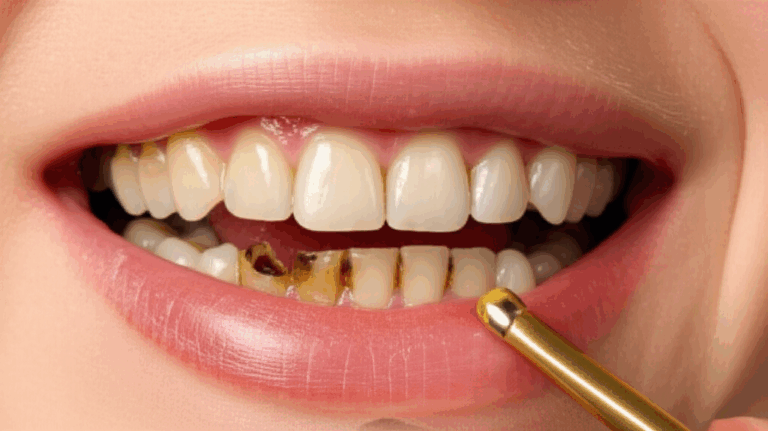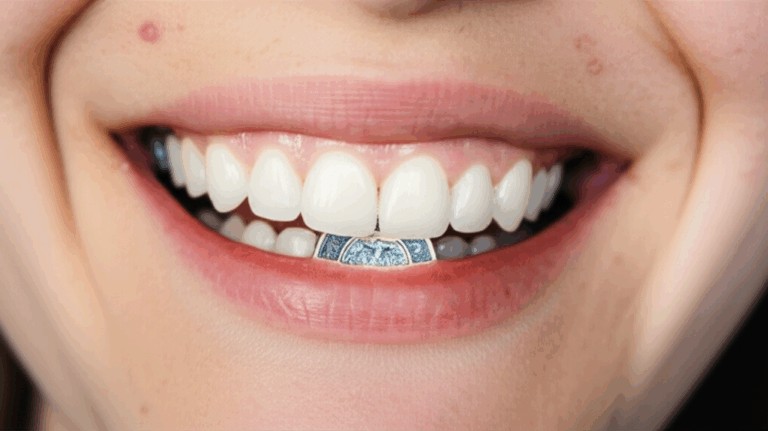
Dental Implants: What’s the Right Age? Understanding Age Limits and Suitability
Have you ever looked at a space where your tooth should be and thought, “Am I too young or too old for dental implants?” Or maybe you’re a parent, worried because your teenager lost a tooth while playing sports. Maybe you care for an older loved one and wonder, “Is there an age when implants aren’t safe anymore?” If you’ve had these questions, you’re not alone—and it’s good to ask!
Truth is, dental implants are one of the best ways to replace missing teeth, bringing back how you eat and your confidence. But age—especially if you’re old enough for implants—is a topic with lots of wrong ideas. Let’s make things clear.
In This Article
- Is There an Age Limit for Dental Implants?
- Why Does Jaw Growth Matter for Implants?
- Minimum Age Guidelines: When Can You Get Dental Implants?
- Do Dental Implants Have a Maximum Age Limit?
- Other Things That Matter: More Than Age
- How Dentists Check if You’re Ready for Implants
- If Implants Aren’t Right for You: What Else Can You Do?
- Key Takeaways: What to Do Next
Is There an Age Limit for Dental Implants?
Let’s get straight to the point. Lots of people wonder every year, “How old do you have to be for dental implants?”
The Simple Answer:
- There’s usually a minimum age, but no real upper age limit.
- With young people, it’s mostly about the jaw being grown, not your birthday.
- For older adults, your health is more important than your age.
Age alone isn’t the only thing that matters—it’s just one part of the bigger picture.
Why Does Jaw Growth Matter for Implants?
Did you ever build sandcastles on the beach, and they sank when the sand moved? That’s kind of what it’s like to put an implant in a jaw that’s still growing.
Growth Plates & The Maturing Jaw
Your jaw keeps growing and changing shape during your teenage years. If you put an implant into a jaw that isn’t done growing, the implant can end up in the wrong place when the jawbone keeps growing—like a fencepost in ground that moves.
Implants don’t move as the jaw grows. This can cause:
- Teeth and bone that don’t line up right
- Implants that look sunken
- Problems with how you bite later on
Bottom line: Waiting until your jaw is finished growing helps prevent future problems.
Minimum Age Guidelines: When Can You Get Dental Implants?
So, exactly when can someone get dental implants? It’s about your age and if your jaw is done growing!
The Usual Benchmarks
- Most girls: Jaw growth ends around 17 to 20 years old.
- Most boys: Jaw grows until about 18 to 24 years old.
But here’s the trick: It’s not just about your birthday. It’s about whether your jawbone is fully grown. Dentists check this with X-rays and sometimes 3D pictures to be sure.
Quick Table: Typical Jaw Growth & Implant Timing
| Gender | Jaw Growth Ends | Recommended Minimum Implant Age |
|---|---|---|
| Females | 17-20 years | 17-20 years, if growth is done |
| Males | 18-24 years | 18-24 years, if growth is done |
The Rare Exceptions
Sometimes, things happen like accidents or missing teeth from birth. Dental teams might consider an implant earlier, but only with lots of checks to make sure the jaw’s done growing.
More often, a temporary option, like a retainer with a fake tooth, can fill the gap until the jaw is ready.
Signs You’re Probably Not Ready Yet
- Still growing taller
- Had braces or other dental work very recently
- X-rays show the growth plates are still open
If this is you, waiting is the safest bet for your future smile.
Do Dental Implants Have a Maximum Age Limit?
Let’s look at the flip side. Is there such a thing as “too old” for dental implants?
Good news: No, there isn’t! Some people get implants in their 90s.
Why Age Isn’t a Roadblock
- Your health is more important than your age.
- Many people in their 70s, 80s, and even older have great results with implants.
- If you’re healthy enough for a quick surgery, you’re likely fine for implants.
Important Points for Older Adults
- Overall health: Are any conditions, like diabetes, under control? Is your heart healthy?
- Bone strength: Thin bones (like from osteoporosis) can matter, but aren’t always a problem.
- Healing ability: Smoking and some medicines can slow healing.
- Taking care of your teeth: You’ll need to clean your mouth well to keep the implant healthy.
If you’re healthy and your dentist says it’s okay—you can go for it!
Fun fact: People over 70 usually have success rates with implants just as good as people in their 40s and 50s—over 90% out to five years.
Other Things That Matter: More Than Age
Even though your age matters a little, it’s definitely not the only thing dentists think about. Your mouth and health are just as important.
Big Questions Your Dentist Will Ask
1. Do you have enough strong bone?
Implants need good solid bone to hold on to. Not enough bone? Sometimes you can get a bone graft.
2. Are your gums healthy?
Gum disease must be fixed first, or it can hurt the implant.
3. Do you have health problems?
- Diabetes that is controlled? Usually fine.
- Health problems like recent heart attack, untreated blood pressure, or cancer need more careful thought.
4. Do you smoke?
Smoking makes healing harder and raises the risk of your implant failing.
5. Will you care for your implants?
You have to take care of them—brush, floss, and see the dentist regularly.
More Things (not talked about as much):
- Are you on medicines like blood thinners or those that weaken bone?
- Did you lose the tooth long ago, making the bone shrink?
- Did you lose the tooth by accident, genetics, or illness?
Your dentist will think about all of this when deciding what’s best.
How Dentists Check if You’re Ready for Implants
Getting dental implants is not a lucky guess—it’s careful checking and planning. Here’s what usually happens.
Step 1: Full Mouth Check
Dentist looks at:
- How strong and healthy your teeth and gums are
- How your teeth bite together
- How clean your mouth is
- Your health history—like allergies, long-term illnesses, or what medicines you take
Step 2: Pics of Your Jaw (Imaging)
Think of this as looking “inside” your jaw:
- Big X-rays: Give a wide view of your teeth and jaws.
- 3D scans: Give a really close look at the amount and quality of your bone.
Lots of dentists now use new digital dental lab tools to get these images.
Step 3: Team Meeting
Getting an implant often involves a whole team:
- Oral Surgeon: Puts the implant in your jaw.
- Gum Specialist (Periodontist): Handles bone and gum health.
- Tooth Specialist (Prosthodontist): Makes and puts on the tooth you see.
This is even more important if you’re really young or old.
Step 4: Your Treatment Plan
Every plan is custom-made and might include:
- Treating any gum problems
- Pulling any problem teeth
- Adding bone if yours is too thin or short
- Waiting for the best time if you’re still growing
You’ll get a step-by-step idea of what’s next.
If Implants Aren’t Right for You: What Else Can You Do?
Maybe now isn’t the best time for implants. Or you want to know every choice. Good news—there are other solid options.
1. Dental Bridges
These fill the gap by holding a fake tooth using the teeth next to the space. They’re quick but mean the next-door teeth need to be trimmed down. Bone health isn’t as big a deal here as implants.
2. Removable Partial or Full Dentures
These are fake teeth you can take out. (Think of Grandma’s “teeth in a glass”—but they look much better now, thanks to modern removable denture lab work.) Dentures are good if you’re missing a lot of teeth or have weak bones.
3. Braces (Orthodontics)
If you or your kid lose a tooth early, sometimes braces can close the gap by moving the teeth over time.
Temporary Choices for Younger Teens:
A “flipper” retainer or a glued-in bridge can fill a gap until you’re old enough for an implant. If you want to know more, ask about what a dental lab for retainers can make for you.
Key Takeaways: What to Do Next
That’s a lot to take in! Here are the key things to remember:
Dental Implants & Age – The Basics
- Minimum Age: Most people need to wait until their late teens or twenties after their jaw stops growing. Your dentist can check this with easy scans.
- No Top Age Limit: You’re never “too old” for implants, if you’re healthy. Age doesn’t shut the door.
- Health First: How strong your bone and gums are, and if your health problems are under control, matters most.
- Long-Lasting Solution: Dental implants, especially made by a good implant dental laboratory, are strong and natural-looking.
- There Are Choices: If you can’t get implants, there are other good solutions.
- Knowing Stuff Helps: A proper checkup and X-rays let you know what’s best for you.
Your Next Steps: What to Do Now
Take a breath. If you’ve got a missing tooth or are wondering if implants are possible for your age, book a checkup with your dentist. It never hurts to ask—they’ll help you figure it out.
How to Get Started:
- Make a dental appointment: Ask about your bone, gums, and jaw growth.
- Bring your own questions: Ask about age, missing bone, or health issues.
- Ask for all options: Implants, bridges, dentures, and temporary fixes for kids—all can be discussed.
- Take care of your teeth: No matter which you choose, brushing, flossing, and going to the dentist are key.
- Keep learning: Want to know about teeth health or dental diseases? Trusted websites and your dental team are great places to start.
Frequently Asked Questions (FAQ) – Dental Implants & Age
Q: My 16-year-old lost a front tooth. Can we get an implant now?
A: Usually not yet. Waiting until the jaw is done growing—checked with X-rays—is best. A temporary option works for now.
Q: I’m 72 and in good health, but wear dentures. Are implants possible for me?
A: Yes! If you have enough bone and your health is good, implants can work very well—even to replace all your teeth.
Q: How do I know if my jaw is done growing?
A: Your dentist can check X-rays (and sometimes 3D scans) to see if the growth plates are closed. They might also ask about your height changes and dental history.
Q: What if I’ve been told I don’t have enough bone?
A: Don’t worry yet. You might be able to get a bone graft or a sinus lift to help.
Q: Are dental implants permanent?
A: With good care, implants can last many years—sometimes your whole life.
The Bottom Line
Your age is just one part of the dental implant story. If you’re thinking about this for yourself, your teen, or someone close to you, the big things are jaw growth, bone and gum health, and your overall well-being. Today’s dentists and dental teams are ready to help you get a confident, healthy smile at any age.
Want to know more? Take a look at our tips on teeth information and dental care. Ready to go further? Book a visit, ask questions, and get ready to take care of your teeth—no matter how old you are.
References:
- American Dental Association (ADA)
- American Academy of Implant Dentistry (AAID)
- Journal of Oral Implantology
- Clinical Oral Implants Research
(All info and numbers above are based on what these big dental groups and top studies say.)
Learning is the best thing you can do! Keep asking questions, take care of your teeth, and let your dentist help you get that healthy smile.








